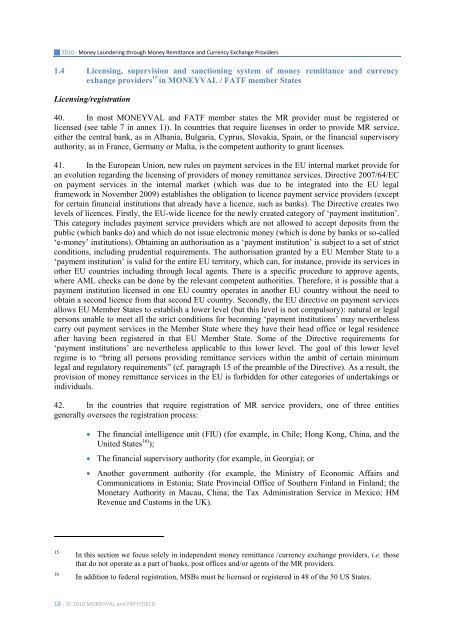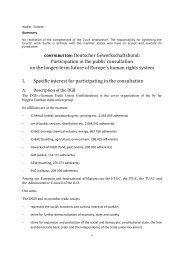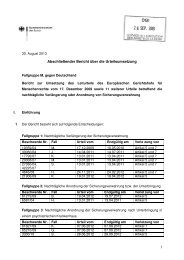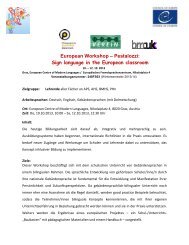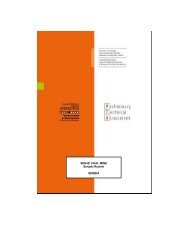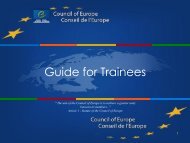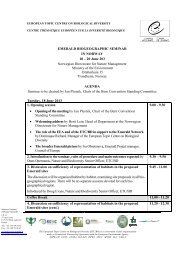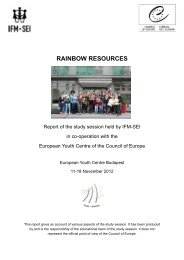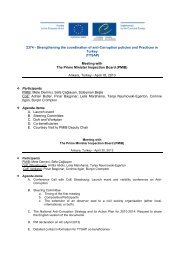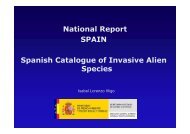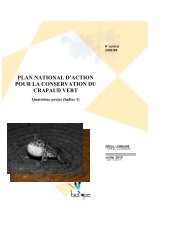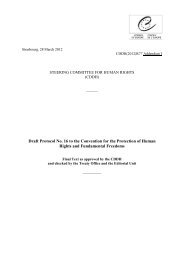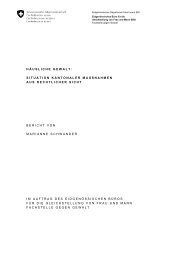Money laundering through money remittance ... - Council of Europe
Money laundering through money remittance ... - Council of Europe
Money laundering through money remittance ... - Council of Europe
Create successful ePaper yourself
Turn your PDF publications into a flip-book with our unique Google optimized e-Paper software.
2010 - <strong>Money</strong> Laundering <strong>through</strong> <strong>Money</strong> Remittance and Currency Exchange Providers<br />
1.4 Licensing, supervision and sanctioning system <strong>of</strong> <strong>money</strong> <strong>remittance</strong> and currency<br />
exhange providers 15 in MONEYVAL / FATF member States<br />
Licensing/registration<br />
40. In most MONEYVAL and FATF member states the MR provider must be registered or<br />
licensed (see table 7 in annex 1)). In countries that require licenses in order to provide MR service,<br />
either the central bank, as in Albania, Bulgaria, Cyprus, Slovakia, Spain, or the financial supervisory<br />
authority, as in France, Germany or Malta, is the competent authority to grant licenses.<br />
41. In the <strong>Europe</strong>an Union, new rules on payment services in the EU internal market provide for<br />
an evolution regarding the licensing <strong>of</strong> providers <strong>of</strong> <strong>money</strong> <strong>remittance</strong> services. Directive 2007/64/EC<br />
on payment services in the internal market (which was due to be integrated into the EU legal<br />
framework in November 2009) establishes the obligation to licence payment service providers (except<br />
for certain financial institutions that already have a licence, such as banks). The Directive creates two<br />
levels <strong>of</strong> licences. Firstly, the EU-wide licence for the newly created category <strong>of</strong> „payment institution‟.<br />
This category includes payment service providers which are not allowed to accept deposits from the<br />
public (which banks do) and which do not issue electronic <strong>money</strong> (which is done by banks or so-called<br />
„e-<strong>money</strong>‟ institutions). Obtaining an authorisation as a „payment institution‟ is subject to a set <strong>of</strong> strict<br />
conditions, including prudential requirements. The authorisation granted by a EU Member State to a<br />
„payment institution‟ is valid for the entire EU territory, which can, for instance, provide its services in<br />
other EU countries including <strong>through</strong> local agents. There is a specific procedure to approve agents,<br />
where AML checks can be done by the relevant competent authorities. Therefore, it is possible that a<br />
payment institution licensed in one EU country operates in another EU country without the need to<br />
obtain a second licence from that second EU country. Secondly, the EU directive on payment services<br />
allows EU Member States to establish a lower level (but this level is not compulsory): natural or legal<br />
persons unable to meet all the strict conditions for becoming „payment institutions‟ may nevertheless<br />
carry out payment services in the Member State where they have their head <strong>of</strong>fice or legal residence<br />
after having been registered in that EU Member State. Some <strong>of</strong> the Directive requirements for<br />
„payment institutions‟ are nevertheless applicable to this lower level. The goal <strong>of</strong> this lower level<br />
regime is to “bring all persons providing <strong>remittance</strong> services within the ambit <strong>of</strong> certain minimum<br />
legal and regulatory requirements” (cf. paragraph 15 <strong>of</strong> the preamble <strong>of</strong> the Directive). As a result, the<br />
provision <strong>of</strong> <strong>money</strong> <strong>remittance</strong> services in the EU is forbidden for other categories <strong>of</strong> undertakings or<br />
individuals.<br />
42. In the countries that require registration <strong>of</strong> MR service providers, one <strong>of</strong> three entities<br />
generally oversees the registration process:<br />
The financial intelligence unit (FIU) (for example, in Chile; Hong Kong, China, and the<br />
United States 16) );<br />
The financial supervisory authority (for example, in Georgia); or<br />
Another government authority (for example, the Ministry <strong>of</strong> Economic Affairs and<br />
Communications in Estonia; State Provincial Office <strong>of</strong> Southern Finland in Finland; the<br />
Monetary Authority in Macau, China; the Tax Administration Service in Mexico; HM<br />
Revenue and Customs in the UK).<br />
15 In this section we focus solely in independent <strong>money</strong> <strong>remittance</strong> /currency exchange providers, i.e. those<br />
that do not operate as a part <strong>of</strong> banks, post <strong>of</strong>fices and/or agents <strong>of</strong> the MR providers.<br />
16 In addition to federal registration, MSBs must be licensed or registered in 48 <strong>of</strong> the 50 US States.<br />
18 - © 2010 MONEYVAL and FATF/OECD


